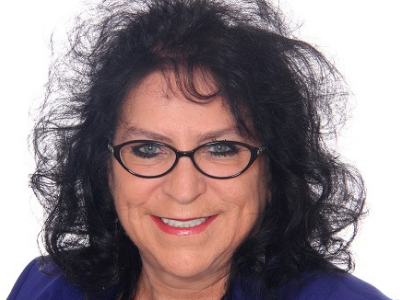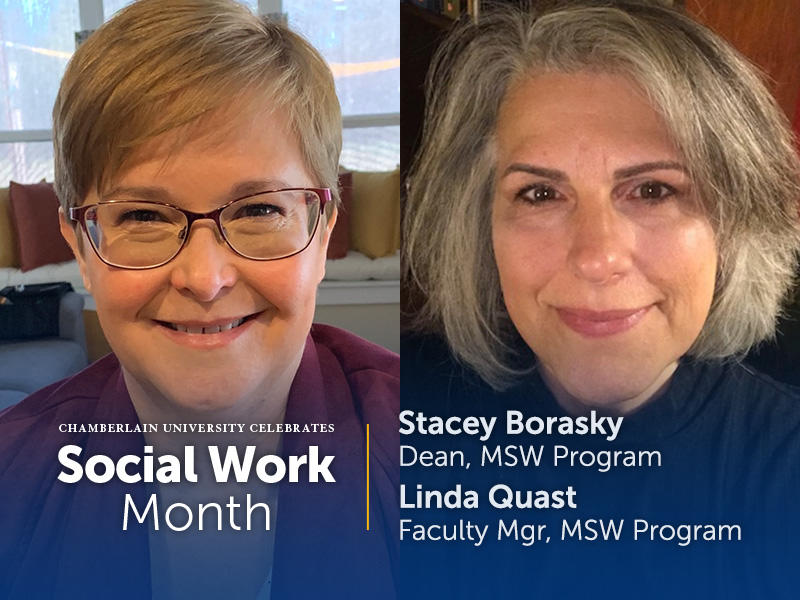Featured
Tags
Share
- Home / Blog / Health Professions / 5 Nursing Leadership Lessons
5 Nursing Leadership Lessons

Blaze a path to the future you dream of by earning a BSN degree.
If want to advance your education, you may find the motivation you need in these empowering words from an award-winning nursing leader and educator: “Don’t be afraid, just do it.”
“I have never stopped learning or continuing my education,” says Catherine Mohammed, PhD(c), MPhil, MN, RN. “I say this because if you want to change something, educate yourself and then take it upon yourself to make the change.”
Mohammed has walked the walk, building an impressive career than spans more than 30 years—and counting—in nursing education, leadership and administration.
She is now the interim program director at the Sacramento, California, campus of Chamberlain University. During her more than 12 years at Chamberlain, she’s worked as a faculty member, dean of academic affairs, and senior manager of academic success. In 2018, Mohammed was named the March of Dimes Nurse of the Year for Nursing Leadership/Administration Management.
The healthcare leader has gathered countless insights from her experiences in academia, acute care, critical care and leadership. She sat down with us to share these five important lessons about nursing leadership:
1. Never Forget Why You Wanted to Become a Nurse.
From the time I was 4 years old, I’ve wanted to be a nurse. Some of my earliest memories are from visiting the veterans at the VA Home in Minneapolis with the Girl Scouts. I was always happy to sit with the patients, and never shied away from the injuries and illnesses I sometimes saw. It’s important to remember the moment you first knew you were able and willing to help people in their most vulnerable times. I was never scared of the things I saw at the VA Home and that memory serves as a reminder of what it means to really listen and help people.
2. Strive for Continuous Improvement.
At my first job as a registered nurse, I realized there were areas I wanted to improve on—training, workload, work environment, and of course, providing the best possible care for patients. One of the first things I did was to educate myself on ACLS - Advanced Cardiac Life Support. I also studied patient care plans/outcomes/standards and read any nursing journal I could get my hands on so that I could provide the best care that I could for my patients.
Two years later, I became the assistant manager and truly discovered my love of leadership. I read every book and article I could find on leadership. I listened to tapes. I attended seminars and classes. Even my dissertation is on Nursing Leadership!
I have never stopped learning or continuing my education. I say this because if you want to change something - educate yourself and then take it upon yourself to make the change. Don’t be afraid, just do it.
3. Go for the BSN.
I believe that nurses should at least have a Bachelor of Science in Nursing (BSN) as entry level. Nurses are the leaders, coordinators, critical thinkers and patient advocates that govern most of everything done with patients. They are often in leadership positions early on and the advancement of their careers can only happen with a BSN. Is getting your BSN a commitment? Yes. But there are countless benefits that come with it. Nurses with BSNs have more job opportunities and more responsibilities including leadership roles.
4. Take on Leadership Roles Early and Often.
One of Chamberlain’s most important courses in our pre-licensure curriculum is the Leadership and Management course. We can only touch on the basics of leadership but we try to at least spark the students’ interest so they will go on to become more involved. I have found that many of our graduates have taken on leadership roles earlier in their career. I have also found that our students tend not to be afraid to have their voice heard, change their work environments and transform healthcare across the world!
5. Dream It. Define It. Do It.
There is no longer a traditional path to a leadership role or job you may want. Whatever role it is that you think is necessary to better the outcomes of our patients or staff – go for it. Who knows, maybe it doesn’t even exist yet – so invent it. Define it, discuss it with others, take a risk and then pitch your ideas to those who can help you obtain it. If you dream it, you can do it.
Nurses continue to shape the future of our industry. And as the demand for nurses grows – so does the need for nurses to lead. It’s been proven time and again that having more nurses in leadership roles – especially those with BSN’s – is not only beneficiary to our patients, but our industry as a whole. The more our nurses succeed – the more our overall health as a nation does as well.
Thinking of getting your BSN? Learn more about Chamberlain’s 3-Year BSN program here.
Advance Your Nursing Education With a BSN
You can prepare to make a difference in America’s largest healthcare profession1 by earning a Bachelor of Science in Nursing (BSN) degree from Chamberlain University.
For more than 130 years, Chamberlain has been preparing students for rewarding careers as healthcare professionals. Today, its many options include certificates and bachelor’s, master’s and doctoral degree programs in nursing.
Chamberlain offers several ways to earn your BSN degree:
- Bachelor of Science in Nursing (BSN): Earn your BSN at one of Chamberlain’s 23 U.S. campus locations. You’ll start taking nursing classes on Day 1 in this hands-on program.
- BSN Online Option: Find the best of both worlds in a hybrid learning model that combines online coursework with onsite clinical experience. Your nursing classes are available online 24/7, giving you the flexibility to create your own school-life balance.
- RN to BSN: Your coursework is 100% online, and you may be able to complete your nursing program in as little as one year.2
Chamberlain is accredited by the Higher Learning Commission (HLC), with multiple program accreditations from the Commission on Collegiate Nursing Education (CCNE). It continuously earns new approvals from respected agencies across the United States.
As the number of nursing jobs grows,3 so does the need for nurses — and nurses who can lead. With a BSN degree, you may have more options as you grow your nursing career. An admission representative can provide more information and help you get started. Move from the dream to the “do it,” and become a nurse helping to shape the future of healthcare.
Chamberlain University, an accredited institution, offers bachelor’s, master’s, doctoral and certificate programs in nursing and healthcare professions. With a growing network of campuses and robust online programs, Chamberlain continues to build on more than 130 years of excellence in preparing extraordinary healthcare professionals.
1Source: www.aacnnursing.org/News-Information/Fact-Sheets/Nursing-Fact-Sheet
2With full-time enrollment
3Source: www.bls.gov/ooh/healthcare/registered-nurses.htm
By Charlene Decrease
More from Health Professions
Request More Information
To receive the Chamberlain University Program Guide, including associated career paths, please select a program of study.






